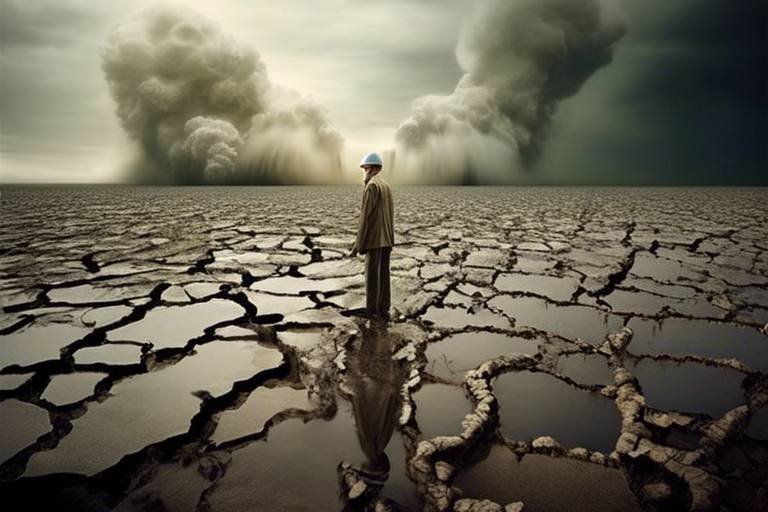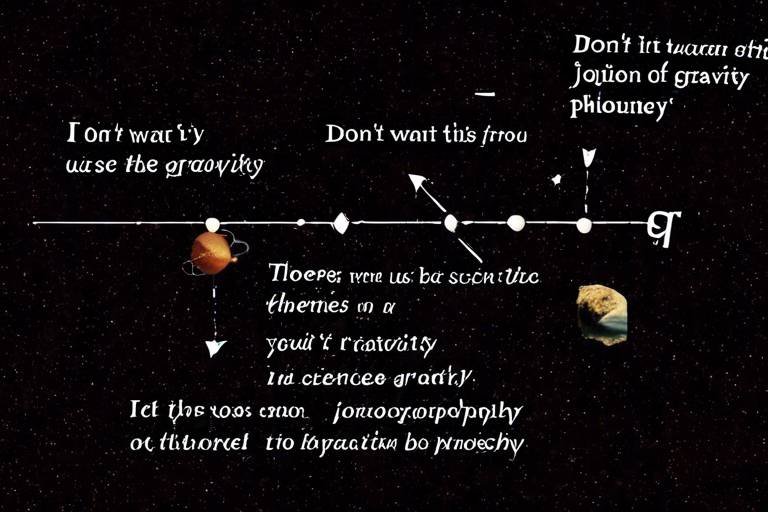Climate Change - The Role of Environmental Philosophy
Climate change is not just an environmental issue; it’s a profound challenge that touches upon our very existence and ethical principles. As we grapple with rising temperatures, extreme weather events, and ecological degradation, we must pause and reflect on the philosophical underpinnings of our actions and policies. Environmental philosophy serves as a guiding light, illuminating the ethical considerations that should inform our responses to this pressing global crisis. It encourages us to think critically about our relationship with nature, prompting us to ask the tough questions: What responsibilities do we hold towards the planet? How do our choices today affect future generations? And what role does justice play in climate action?
At its core, environmental philosophy challenges us to rethink our values and priorities. It pushes us to recognize that the natural world is not merely a resource for human exploitation but a complex web of life that deserves respect and protection. This shift in perspective is crucial for fostering a sustainable future. By integrating ethical considerations into climate policy and individual actions, we can create a more equitable and just world. The insights gained from environmental philosophy can guide us in making decisions that not only address the symptoms of climate change but also tackle its root causes.
Moreover, the role of environmental philosophy extends beyond abstract theory; it has practical implications for policy-making and grassroots movements alike. For instance, when we consider the ethical dimensions of climate change, we can better understand the importance of intergenerational justice, ensuring that we leave a livable planet for those who come after us. This concept emphasizes our moral obligation to protect the environment not just for ourselves but for future generations who will inherit the consequences of our actions.
In addition, environmental philosophy encourages a sense of global responsibility. Climate change is a global phenomenon that transcends national borders. It calls for collective action and shared accountability among nations, urging us to work together to mitigate its impacts. This interconnectedness highlights the necessity of equitable solutions that consider the needs of vulnerable populations disproportionately affected by climate change.
Ultimately, the role of environmental philosophy in addressing climate change is to instill a sense of ethical duty and inspire action. By fostering a deeper understanding of our responsibilities towards the planet and each other, we can cultivate a culture of sustainability that resonates at both the individual and collective levels. As we navigate the complexities of climate change, let us remember that our choices today can shape the world of tomorrow. Together, through the lens of environmental philosophy, we can forge a path towards a more sustainable and just future.
- What is environmental philosophy? Environmental philosophy is a branch of philosophy that examines the ethical relationship between humans and the natural world, focusing on our responsibilities towards the environment.
- How does environmental philosophy relate to climate change? Environmental philosophy provides a framework for understanding the ethical implications of climate change, guiding our moral obligations and informing policy decisions.
- What is intergenerational justice? Intergenerational justice refers to the ethical consideration of the rights and responsibilities we hold towards future generations, emphasizing the need to protect the environment for those who will come after us.
- Why is global responsibility important in climate action? Global responsibility underscores the interconnectedness of nations in combating climate change, highlighting the need for collective action and shared accountability to address the crisis effectively.
- How can individual actions contribute to climate change solutions? Individual actions, when aligned with ethical principles, can foster sustainable lifestyles and contribute to broader climate solutions, demonstrating that every choice matters.
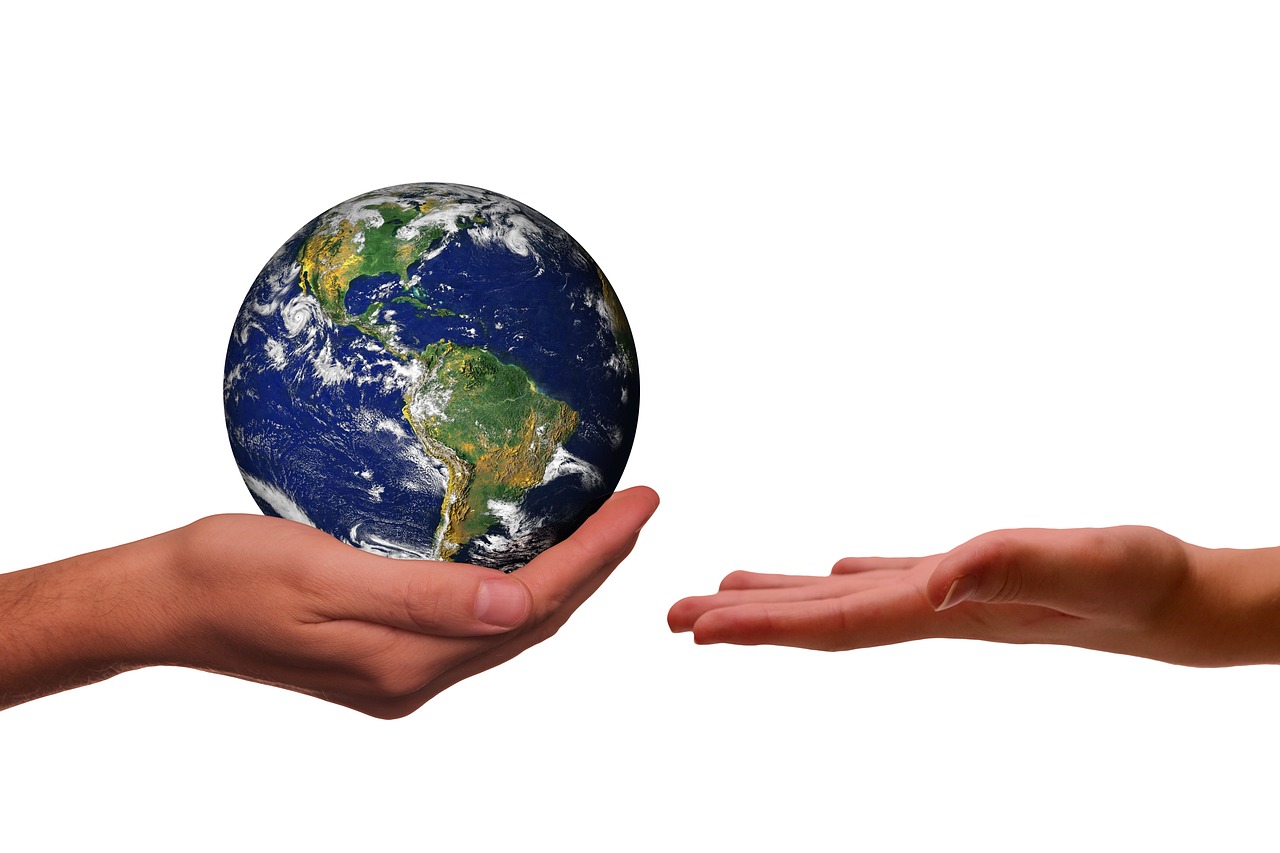
Understanding Environmental Philosophy
Environmental philosophy is a fascinating field that dives deep into the ethical relationship between humans and the natural world. It’s like peering through a lens that reveals not just how we interact with our environment, but also how we ought to act in light of our responsibilities. Imagine standing at the edge of a beautiful forest; the trees whispering secrets of centuries gone by, while the streams sing songs of life. This connection we feel is not just emotional; it’s deeply philosophical. Environmental philosophy challenges us to critically examine our values and beliefs about nature, urging us to reflect on our role in the ecosystem.
At its core, environmental philosophy prompts us to ask some pretty big questions: What is our duty to the Earth?, How should we treat other living beings?, and What kind of world do we want to leave for future generations? These questions are not just academic; they have real implications for how we approach climate change and sustainability. By engaging with these ideas, we can develop a framework for understanding the complexities of environmental issues. This framework guides our ethical considerations, shaping policies that promote sustainable living and ecological balance.
One of the key aspects of environmental philosophy is the idea of critical thinking. It encourages us to challenge prevailing norms and consider alternative perspectives. For instance, when we think about climate change, we often focus on technological solutions or economic impacts. But what if we also considered the moral implications of our actions? This approach can lead to a more holistic understanding of environmental issues, one that encompasses not just human interests, but the interests of all living beings. It’s about recognizing that we are all part of a larger web of life, where every action has consequences.
Moreover, environmental philosophy emphasizes the importance of ethical reflection. This means taking a step back and contemplating the values that drive our decisions. Are we prioritizing short-term gains over long-term sustainability? Are we considering the voices of marginalized communities who are often the most affected by environmental degradation? By reflecting on these questions, we can align our actions with our values, creating a more just and equitable approach to climate change.
In summary, understanding environmental philosophy is crucial for anyone looking to make a positive impact on our planet. It challenges us to think deeply about our relationship with nature and encourages us to act ethically and responsibly. As we navigate the complexities of climate change, let’s remember that our choices matter. Each decision we make is an opportunity to contribute to a sustainable future, not just for ourselves, but for generations to come.

The Ethical Implications of Climate Change
Climate change is not just an environmental issue; it’s a profound ethical dilemma that challenges our values, responsibilities, and relationships with one another and the planet. As we navigate this complex landscape, we must confront significant ethical questions about responsibility, justice, and equity. These questions arise from the realization that our actions today will have lasting impacts on future generations. Are we doing enough to safeguard the world for those who come after us? This is where environmental philosophy steps in, providing a critical lens through which we can examine our moral obligations.
One of the core ethical implications of climate change is the concept of intergenerational justice. This principle posits that we have a duty to protect the environment not just for ourselves but for future generations who will inherit the consequences of our actions. Imagine a time capsule filled with the remnants of our current society—our innovations, our mistakes, our triumphs. Now, think about how the contents of that capsule will affect those who open it in a hundred years. Environmental philosophy urges us to consider what legacy we want to leave behind. Are we willing to be the generation that prioritized short-term gains over long-term sustainability?
Intergenerational justice emphasizes the rights and responsibilities we hold towards future generations. It calls for a shift in perspective where we view ourselves as stewards of the Earth. This stewardship implies a moral obligation to ensure that future inhabitants of our planet have access to a healthy environment, clean air, and abundant resources. The ethical question here is stark: What right do we have to deplete resources and pollute the planet for those who are yet to be born? By adopting a framework of intergenerational justice, we can begin to make choices that reflect a commitment to sustainability and respect for future lives.
Another critical aspect of the ethical implications of climate change is equity in climate policy. Vulnerable populations—often those who contribute the least to climate change—are disproportionately affected by its impacts. This raises important questions about fairness and justice. How can we create climate policies that do not exacerbate existing inequalities? Environmental philosophy provides insights into how we can design fair and just climate solutions that consider the needs of all, particularly marginalized communities. For instance, policies should prioritize support for those who are most at risk, ensuring that their voices are heard in decision-making processes.
Lastly, the concept of global responsibility highlights the interconnectedness of nations in combating climate change. No single country can tackle this issue alone; it requires a collective effort. Environmental philosophy advocates for shared accountability, suggesting that wealthier nations, which have historically contributed the most to greenhouse gas emissions, have a moral obligation to assist developing countries in their climate adaptation and mitigation efforts. This is not just about charity; it’s about recognizing our interconnected fates and working together to build a sustainable future. How can we expect to thrive as a global community if we ignore the plight of others?
In conclusion, the ethical implications of climate change compel us to rethink our responsibilities to one another and to future generations. By embracing principles of intergenerational justice, equity, and global responsibility, we can foster a more sustainable and just world. It’s a call to action for individuals, communities, and nations alike to unite in the face of this pressing challenge.
- What is intergenerational justice? Intergenerational justice refers to the ethical consideration of the rights and responsibilities we have towards future generations, particularly in relation to environmental sustainability.
- How does climate change affect vulnerable populations? Vulnerable populations often lack the resources to adapt to climate impacts, making them disproportionately affected by issues such as extreme weather, food insecurity, and displacement.
- Why is global responsibility important in addressing climate change? Global responsibility emphasizes that climate change is a shared challenge that requires collective action, particularly from those who have historically contributed the most to the problem.
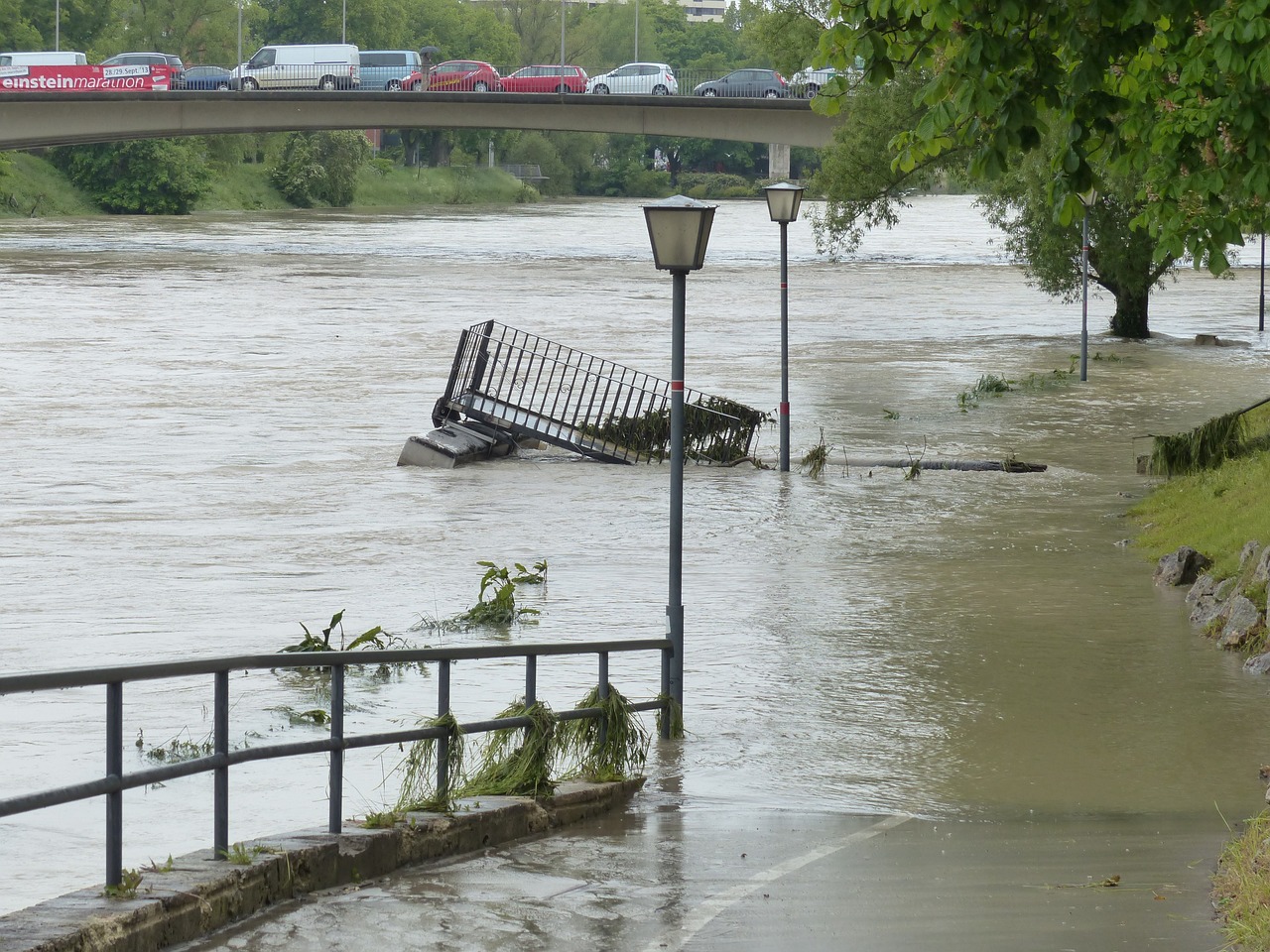
Intergenerational Justice
Intergenerational justice is a concept that emphasizes our moral obligations to future generations. Imagine handing over a family heirloom to your children; you’d want to ensure it’s in good condition, right? Similarly, we hold the responsibility to pass on a livable planet to those who will come after us. This principle encourages us to think beyond our immediate needs and desires, urging us to consider the long-term impacts of our actions on the environment.
At its core, intergenerational justice challenges us to ask tough questions: What kind of world do we want to leave behind? Are we making decisions that prioritize short-term gains over the well-being of future inhabitants of our planet? These questions are not just philosophical musings; they are essential to shaping policies that aim for sustainability and ecological balance. To illustrate this, let’s take a look at some key aspects of intergenerational justice:
- Environmental Stewardship: We must act as stewards of the Earth, ensuring that our natural resources are conserved and protected for future generations.
- Equitable Resource Distribution: It’s crucial to ensure that resources are not depleted in a way that leaves future generations at a disadvantage.
- Long-term Policy Making: Policies should be designed with the future in mind, prioritizing sustainable practices that will benefit generations to come.
Moreover, intergenerational justice is intricately linked with concepts like sustainability and equity. When we think about climate change, we must recognize that the actions we take today can have profound effects on the lives of those who will inhabit this planet decades or even centuries from now. For instance, decisions made regarding fossil fuel consumption or deforestation can lead to irreversible damage, impacting the quality of life for future populations.
This philosophy also compels us to engage in a broader dialogue about our values and priorities as a society. Are we willing to sacrifice a little convenience today for the sake of a better tomorrow? It’s a tough question, but one that is increasingly relevant in discussions about climate change and environmental policy. The reality is that our choices today will echo through time, shaping the world that future generations will inherit.
In conclusion, embracing intergenerational justice means recognizing that we are part of a larger continuum. Our actions today set the stage for future possibilities, and it's our duty to ensure that those possibilities are not just viable but flourishing. By adopting this mindset, we can foster a culture of responsibility and care that transcends generations, ultimately leading to a more sustainable and just world for all.
- What is intergenerational justice? Intergenerational justice refers to the ethical consideration of how our actions today affect future generations, emphasizing our moral responsibility to ensure a sustainable and livable planet for them.
- Why is intergenerational justice important? It is crucial because it encourages us to think long-term about our environmental impact and motivates us to make choices that protect the planet for future inhabitants.
- How can individuals practice intergenerational justice? Individuals can practice this by making sustainable choices, advocating for policies that prioritize environmental protection, and educating others about the importance of caring for our planet.
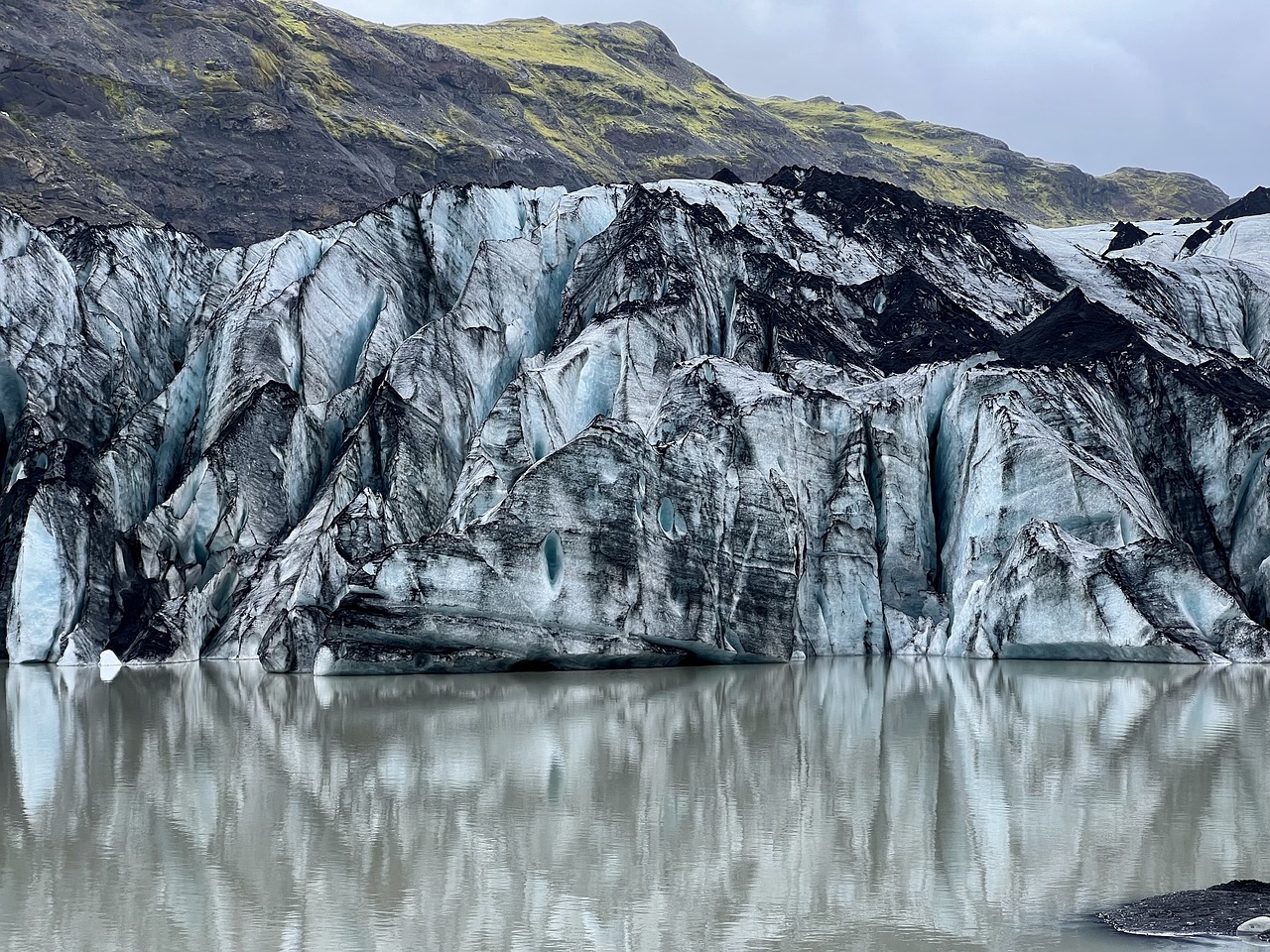
Equity in Climate Policy
When we talk about climate change, it’s impossible to ignore the notion of equity. This concept is not just a buzzword; it’s a vital framework for understanding how climate policies can either uplift or undermine vulnerable communities. Imagine a world where the impacts of climate change are felt unevenly, like a game of musical chairs where some are left standing while others find a seat. This is the reality we face, and it’s why equity in climate policy is essential.
Climate change doesn’t affect everyone equally. Those who contribute the least to greenhouse gas emissions—often marginalized communities—are frequently the ones who bear the brunt of climate impacts. This raises the question: how can we create policies that ensure fairness and justice? seeks to address this imbalance by ensuring that all voices are heard and that the needs of the most affected populations are prioritized.
To achieve equity, we must consider various dimensions, including economic, social, and environmental factors. For example, a well-designed climate policy should:
- Ensure that funding and resources are directed towards communities that are most vulnerable to climate impacts.
- Promote access to clean energy and sustainable practices for low-income households.
- Involve affected communities in decision-making processes, allowing them to express their needs and concerns.
Furthermore, equity in climate policy also means recognizing the historical injustices that have led to current disparities. Many indigenous communities, for instance, have been disproportionately impacted by environmental degradation and climate change. By acknowledging these historical contexts, policymakers can craft solutions that not only address current challenges but also heal past wounds.
Another critical aspect of equity in climate policy is the concept of just transition. This idea emphasizes the need to shift towards a sustainable economy without leaving anyone behind. It’s about creating job opportunities in renewable energy sectors for those who have worked in fossil fuel industries, ensuring that all communities can thrive in a greener future. Just as we wouldn’t want to build a bridge that only some can cross, we must ensure that our transition to sustainability is inclusive.
In conclusion, equity in climate policy is not just a moral imperative; it’s a practical necessity. By prioritizing the needs of vulnerable populations, acknowledging historical injustices, and promoting a just transition, we can create climate policies that foster resilience and sustainability for all. It’s time to turn the tide and ensure that everyone has a seat at the table in the fight against climate change.
- What is equity in climate policy?
Equity in climate policy refers to the fair distribution of environmental benefits and burdens, ensuring that marginalized communities are prioritized in climate action. - Why is equity important in addressing climate change?
Equity is crucial because climate change disproportionately affects vulnerable populations, and fair policies can help mitigate these impacts. - How can we ensure equity in climate policies?
By involving affected communities in decision-making, directing resources to those most in need, and recognizing historical injustices.

Global Responsibility
In an era where the impacts of climate change are increasingly evident, the concept of has become a focal point in environmental philosophy. This idea emphasizes that all nations, regardless of their economic status or geographic location, share a collective duty to address the challenges posed by climate change. Just as a family must work together to maintain a harmonious home, countries must unite to protect our shared planet. This interconnectedness means that the actions of one nation can significantly affect others, creating a ripple effect that underscores the need for collaborative efforts.
Philosophically, global responsibility suggests that we cannot isolate ourselves from the consequences of our actions. For instance, industrialized nations that have historically contributed the most to greenhouse gas emissions bear a moral obligation to lead the charge in combating climate change. However, it’s essential to recognize that developing countries, while contributing less historically, often face the brunt of climate-related disasters. This brings us to the heart of the ethical debate: how do we balance responsibility among nations?
One approach is to establish frameworks that promote equitable resource distribution and support for vulnerable populations. This can be achieved through various means, including:
- Financial Assistance: Wealthier nations could provide funding for renewable energy projects in developing countries.
- Technology Transfer: Sharing green technologies can empower nations to adopt sustainable practices.
- Capacity Building: Training programs can help communities adapt to climate change impacts effectively.
Moreover, global responsibility extends beyond mere financial aid. It encompasses the idea of shared accountability for the planet’s health. Countries must commit to international agreements, such as the Paris Agreement, which aims to limit global warming to well below 2 degrees Celsius. This commitment is not just a legal obligation; it is a moral imperative that reflects our duty to future generations. The philosophy behind such agreements is rooted in the belief that a sustainable future is a shared goal, one that requires all hands on deck.
In essence, global responsibility calls for a paradigm shift in how we view our relationship with the environment and each other. It challenges us to think beyond borders and recognize that our fates are intertwined. Just as the butterfly effect illustrates how small actions can lead to significant consequences, our collective efforts—or lack thereof—will determine the future of our planet. By embracing this philosophy, we can foster a culture of cooperation, understanding, and action that transcends national interests and prioritizes the health of our shared home.
- What is global responsibility in the context of climate change?
Global responsibility refers to the collective duty of all nations to address climate change and its impacts, recognizing that actions in one part of the world can affect others. - How can developed countries support developing nations in combatting climate change?
Developed countries can provide financial assistance, share green technologies, and offer training programs to help developing nations adapt to climate change. - Why is international cooperation important for addressing climate change?
International cooperation is crucial because climate change is a global issue that requires collective action to ensure equitable solutions and sustainable outcomes for all.
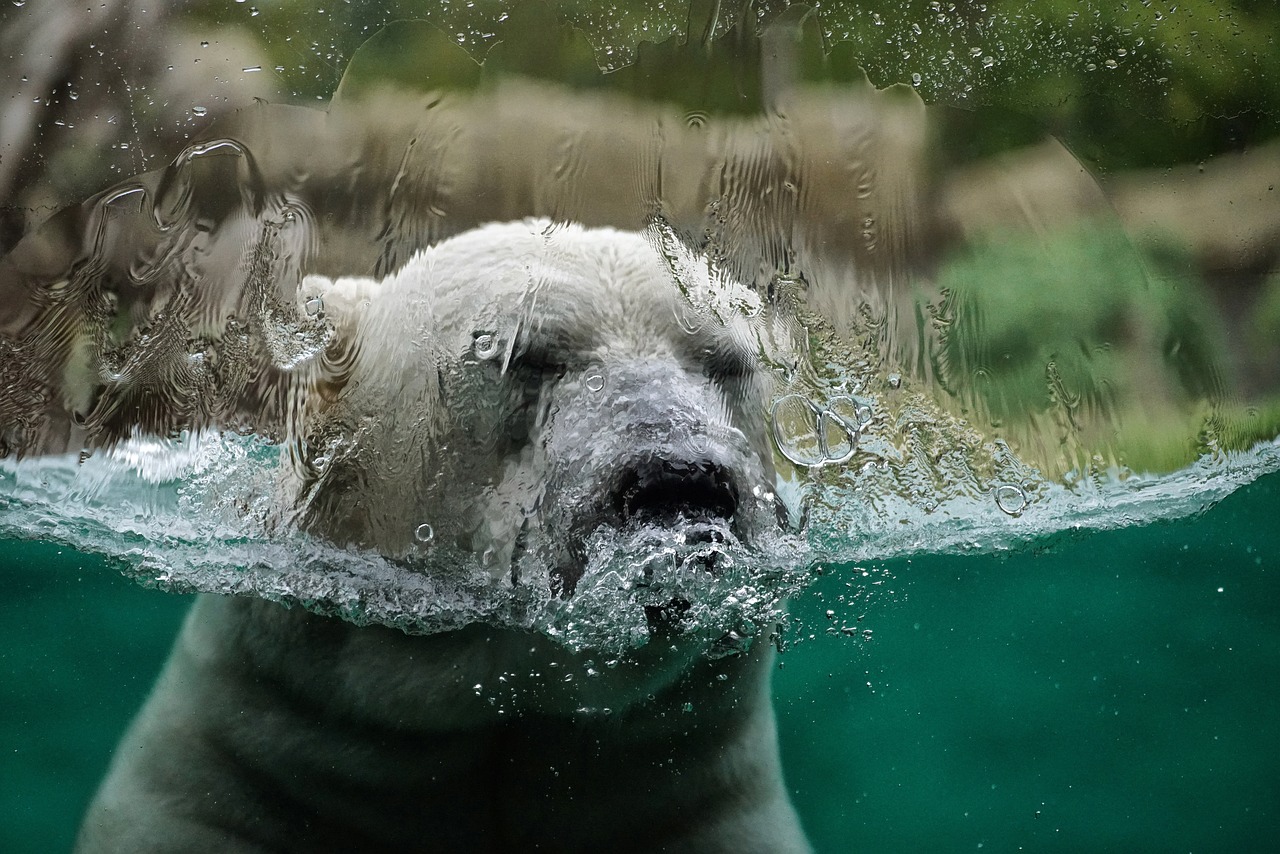
Individual Responsibility and Action
When it comes to climate change, the idea of individual responsibility is often overlooked. Yet, each of us holds a piece of the puzzle that can lead to significant change. Think about it: if every person on the planet made a small adjustment in their daily lives, the cumulative effect could be monumental. It’s like dropping a single pebble into a vast lake; the ripples spread far and wide. So, what does it mean to take individual action in the face of such a colossal challenge?
First, let’s consider our daily choices. From the food we eat to the energy we consume, our decisions can either contribute to or mitigate climate change. For instance, opting for a plant-based diet, reducing meat consumption, or choosing local produce can significantly lower your carbon footprint. It’s not just about making one big change; it’s about a series of small, meaningful actions that collectively lead to a more sustainable lifestyle.
Moreover, our consumer habits play a vital role. By supporting eco-friendly companies and products, we send a clear message to the market that sustainability matters. Consider this: every time you purchase a product, you are casting a vote for the kind of world you want to see. So, why not vote for a greener planet? This can include everything from choosing reusable bags over plastic ones to investing in renewable energy sources for your home.
Additionally, engaging in your local community can amplify your impact. Join or support local environmental organizations, participate in clean-up drives, or advocate for policy changes that promote sustainability. When individuals band together, their collective voice can be a powerful force for change. It’s like a choir; when everyone sings in harmony, the sound is far more impactful than a single voice.
But let’s not forget about education. Sharing knowledge about climate change and sustainable practices with friends and family can inspire them to take action as well. You can be the spark that ignites a wildfire of change in your community. Remember, awareness is the first step towards action, and you can help spread that awareness.
In summary, individual responsibility is not just a buzzword; it’s a call to action. By making conscious choices, supporting sustainable practices, engaging with your community, and sharing knowledge, you can contribute to a healthier planet. The journey towards a sustainable future begins with you. So, what will your first step be?
- What are some simple actions I can take to reduce my carbon footprint?
Some simple actions include using public transport, reducing water usage, recycling, and minimizing single-use plastics.
- How can I influence others to take climate action?
Share information, lead by example, and engage in community discussions about sustainability.
- Is individual action really effective against climate change?
Yes, while individual actions may seem small, collectively they can lead to significant change and influence larger systemic shifts.

Philosophical Approaches to Sustainability
Sustainability isn't just a buzzword; it's a way of life that requires us to rethink our relationship with the environment. Philosophical approaches to sustainability offer unique insights that help us navigate the complexities of ecological balance. By delving into various schools of thought, we can better understand the ethical frameworks that guide our actions towards a more sustainable future. These philosophies compel us to reflect on our values, behaviors, and the long-term impacts of our choices on the planet.
One of the most profound philosophical approaches is Deep Ecology. This philosophy posits that all living beings have intrinsic value, regardless of their utility to humans. It challenges the anthropocentric view that places humans at the center of the universe. Instead, deep ecology advocates for a radical shift in our worldview, urging us to recognize the interconnectedness of all life forms. By embracing this perspective, we can foster a deeper respect for nature, leading to profound changes in our behavior. For instance, individuals might choose to engage in practices like permaculture or rewilding, which not only benefit the environment but also promote biodiversity.
On the other hand, Ecofeminism connects environmental issues with feminist perspectives, highlighting the links between ecological degradation and social injustices. This approach argues that the exploitation of nature mirrors the oppression of women and marginalized groups. Ecofeminism encourages us to adopt holistic solutions that address both environmental and social issues simultaneously. For example, ecofeminists advocate for sustainable agricultural practices that empower women in farming communities, thus promoting both food security and gender equity.
In addition to these philosophies, several other approaches contribute to our understanding of sustainability. These include:
- Utilitarianism: This perspective emphasizes the greatest good for the greatest number, encouraging policies that maximize overall well-being while minimizing environmental harm.
- Phenomenology: This approach focuses on our lived experiences and how they shape our understanding of the environment, urging us to cultivate a deeper connection with nature.
- Social Ecology: This philosophy examines the relationship between ecological issues and social hierarchies, advocating for a more egalitarian society as a means to achieve sustainability.
Ultimately, these philosophical approaches offer us a rich tapestry of ideas that can inspire individual and collective action towards sustainability. By integrating these perspectives into our daily lives, we can cultivate a sense of responsibility and stewardship for the planet. The journey towards sustainability is not just about changing our habits; it's about transforming our mindset and embracing a new way of being in the world.
Q: What is the main goal of sustainability?
A: The main goal of sustainability is to meet the needs of the present without compromising the ability of future generations to meet their own needs. It encompasses environmental, social, and economic dimensions.
Q: How can philosophy influence our approach to environmental issues?
A: Philosophy can provide a framework for understanding our ethical obligations towards the environment, guiding our actions and policies in a way that promotes ecological balance and social justice.
Q: What role do individuals play in achieving sustainability?
A: Individuals play a crucial role by making conscious choices in their daily lives, such as reducing waste, conserving energy, and supporting sustainable practices. Collective action amplifies these efforts and leads to significant change.

Deep Ecology
Deep ecology is a philosophical approach that fundamentally shifts our perception of nature and our place within it. Unlike traditional environmentalism, which often views nature as a resource for human exploitation, deep ecology posits that all living beings possess intrinsic value, irrespective of their utility to humans. This perspective fosters a profound respect for the natural world, encouraging us to rethink our relationship with the environment. Imagine for a moment that every tree, every animal, and every stream has its own rights and worth, much like we do. This radical shift in thinking can inspire a more compassionate and sustainable approach to living on our planet.
The principles of deep ecology advocate for a holistic view of the ecosystem, emphasizing that humans are just one thread in the intricate web of life. This interconnectedness means that our actions have far-reaching consequences, not only for ourselves but for countless other species. By embracing deep ecology, we are challenged to act not just in our own self-interest but in the interest of the entire biosphere. This philosophy calls for a deep-seated change in our values and priorities, urging us to prioritize ecological well-being over economic growth.
One of the core tenets of deep ecology is the idea of biocentrism, which argues for a shift away from anthropocentrism—the belief that human beings are the most important entity in the universe. Biocentrism recognizes that all forms of life have their own inherent worth and should be treated with dignity and respect. This shift can lead to more sustainable practices, as it encourages individuals and communities to consider the ecological impact of their choices. For instance, when deciding whether to support a local business or a large corporation, deep ecology prompts us to consider how each option affects the environment and local ecosystems.
To further illustrate the principles of deep ecology, let's consider a few key ideas:
- Intrinsic Value: Every living being has worth beyond its utility to humans.
- Interconnectedness: All elements of the ecosystem are interconnected, and actions affecting one part can influence the whole.
- Ecological Wisdom: Decisions should be made with a deep understanding of ecological systems and their complexities.
In practical terms, deep ecology encourages us to adopt sustainable practices in our daily lives. This might mean reducing our consumption of resources, supporting conservation efforts, or even engaging in grassroots activism to protect endangered ecosystems. By recognizing the intrinsic value of nature, we can cultivate a sense of responsibility that extends beyond ourselves and our immediate communities. It's about creating a legacy of care for future generations, ensuring that the planet remains vibrant and healthy for all forms of life.
Ultimately, deep ecology is not just a philosophy but a call to action. It challenges us to reconsider our roles as caretakers of the Earth. As we grapple with the realities of climate change and environmental degradation, embracing deep ecology can provide the ethical framework necessary for meaningful change. It invites us to engage with the world around us in a way that is respectful, compassionate, and deeply aware of our interconnectedness. In doing so, we can foster a more sustainable and equitable future, not just for ourselves but for all living beings.
- What is deep ecology? Deep ecology is a philosophical approach that emphasizes the intrinsic value of all living beings and advocates for a holistic view of the ecosystem.
- How does deep ecology differ from traditional environmentalism? While traditional environmentalism often focuses on human-centered concerns, deep ecology promotes the idea that nature has value beyond its utility to humans.
- What can individuals do to practice deep ecology? Individuals can adopt sustainable practices, support conservation efforts, and engage in activism to protect ecosystems.
- Why is deep ecology important for climate change? Deep ecology provides an ethical framework that encourages responsible stewardship of the Earth, fostering a sense of responsibility for future generations.
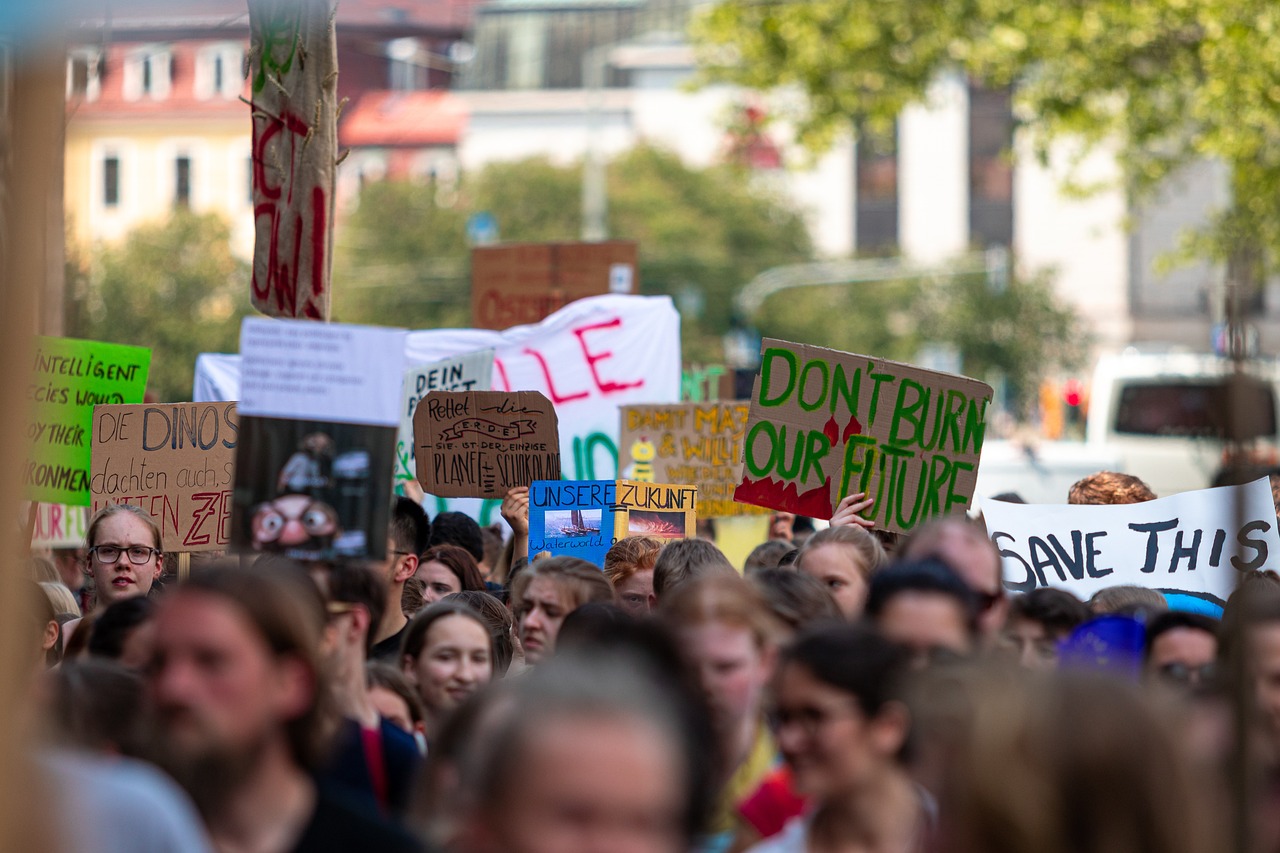
Ecofeminism
Ecofeminism intertwines the realms of environmentalism and feminism, presenting a unique lens through which we can examine the intricate relationships between gender, nature, and society. At its core, ecofeminism posits that the exploitation of the environment and the oppression of women are deeply connected, both stemming from a patriarchal worldview that prioritizes dominance and control over nurturing and coexistence. This philosophical approach encourages us to reevaluate our values and practices, urging us to cultivate a more harmonious relationship with the Earth and each other.
In a world where climate change is wreaking havoc on ecosystems and communities, ecofeminism shines a light on the **intersectionality** of these crises. For instance, women, especially in developing nations, often bear the brunt of environmental degradation. They are typically the primary caregivers and providers, relying on natural resources for their families' survival. When these resources dwindle due to climate change, it disproportionately affects their livelihoods, health, and well-being. This connection between gender and environmental issues emphasizes the need for inclusive solutions that consider the voices and experiences of marginalized groups.
Ecofeminism also challenges traditional notions of power, advocating for a shift from hierarchical structures to more egalitarian relationships. This shift is not just about empowering women; it’s about fostering a holistic approach to sustainability that values all forms of life. By recognizing the intrinsic worth of both women and nature, ecofeminism promotes a more ethical framework for addressing climate challenges. It encourages us to ask ourselves: What would happen if we treated the environment with the same respect and care we afford our loved ones?
Moreover, ecofeminism calls for a reevaluation of our consumption patterns and lifestyle choices. It encourages us to embrace practices that are sustainable and ethical, such as supporting local economies, reducing waste, and advocating for policies that protect both the environment and human rights. By making conscious decisions, we can contribute to a more equitable and sustainable future.
To illustrate the principles of ecofeminism, consider the following table that highlights the key themes and their implications:
| Key Themes | Implications |
|---|---|
| Interconnectedness | Recognizing the link between gender inequality and environmental degradation. |
| Empowerment | Fostering the voices of women and marginalized communities in environmental decision-making. |
| Sustainability | Promoting practices that respect both ecological balance and social justice. |
| Ethics of Care | Encouraging nurturing relationships with nature, akin to those we cultivate with family and friends. |
In summary, ecofeminism not only highlights the urgent need to address climate change but also advocates for a more profound transformation in how we perceive our relationship with the planet and each other. By integrating feminist perspectives into environmental discussions, we can forge a path toward solutions that are not only effective but also just and equitable. As we move forward, it’s crucial to embrace the ecofeminist philosophy, as it offers a roadmap toward a sustainable and compassionate future for all.
- What is ecofeminism? Ecofeminism is a philosophical approach that connects environmental issues with feminist perspectives, emphasizing the links between the exploitation of nature and the oppression of women.
- How does ecofeminism address climate change? Ecofeminism addresses climate change by advocating for inclusive solutions that consider the impacts on marginalized communities, particularly women, and promoting sustainable practices that respect both social and environmental justice.
- Why is interconnectivity important in ecofeminism? Interconnectivity is crucial in ecofeminism because it highlights how societal issues, such as gender inequality, are intertwined with environmental degradation, necessitating holistic solutions.
- What actions can individuals take to support ecofeminism? Individuals can support ecofeminism by making conscious lifestyle choices, advocating for equitable policies, and amplifying the voices of marginalized communities in environmental discussions.
Frequently Asked Questions
- What is environmental philosophy?
Environmental philosophy is the study of the ethical relationship between humans and the natural world. It provides a framework for understanding our responsibilities towards the environment and helps guide actions and policies aimed at sustainability.
- How does climate change raise ethical questions?
Climate change brings up significant ethical issues related to responsibility, justice, and equity. It challenges us to think about our obligations to future generations, the fairness of climate policies, and the need for global cooperation in addressing environmental issues.
- What is intergenerational justice?
Intergenerational justice focuses on the rights and responsibilities we have towards future generations. It emphasizes the importance of protecting the planet and its resources so that those who come after us can enjoy a healthy and sustainable environment.
- Why is equity important in climate policy?
Equity in climate policy ensures that vulnerable populations are not disproportionately affected by climate change. It promotes fairness and justice by considering the needs of those who are most impacted and advocating for solutions that benefit everyone.
- What does global responsibility mean in the context of climate change?
Global responsibility refers to the idea that all nations share accountability in combating climate change. It highlights the interconnectedness of countries and emphasizes the need for collective action to address this global challenge effectively.
- How can individuals contribute to addressing climate change?
Individuals can contribute by making conscious choices that align with ethical principles, such as reducing waste, conserving energy, and supporting sustainable practices. Every small action can collectively lead to significant positive impacts on the environment.
- What is deep ecology?
Deep ecology is a philosophical approach that advocates for the intrinsic value of all living beings. It encourages profound changes in our relationship with nature, promoting a deeper respect for the environment and a commitment to combat climate change.
- How does ecofeminism relate to climate change?
Ecofeminism connects environmental issues with feminist perspectives, addressing both ecological degradation and social injustices. This philosophy promotes holistic solutions to climate challenges by recognizing the interconnectedness of gender and environmental issues.

